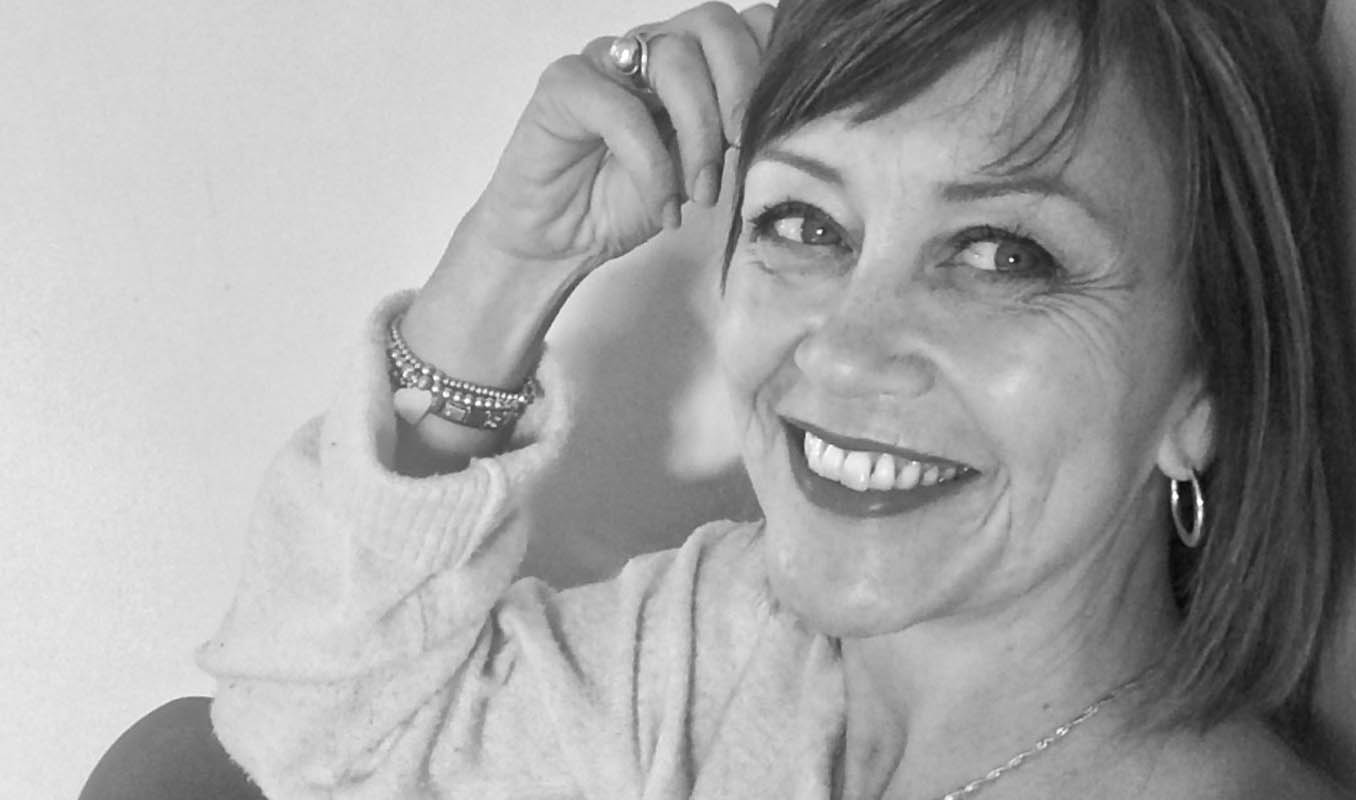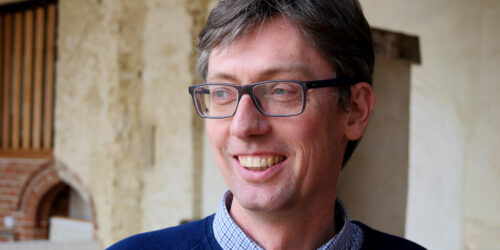
Jenny Knight is a prize-winning writer of short fiction and memoir, she attended PRH WriteNow 2018 and her work has won or been highly listed in many competitions, including the Bridport, Fish Memoir, SSWJ, and a 2019 Arts Council/TLC award.
As part of the Common People project, Jenny received mentoring from Cathy Rentzenbrink, supported by NCW. Her work was featured in ‘Common People: An Anthology of Working-Class Writers,’ edited by Kit de Waal (May 2019) which has received widespread acclaim. Here, she shares the story of her journey from unpublished writer to appearing at PrimaDonna festival…
Your piece Matoose Rowsay was selected by Kit de Waal for the Common People anthology, tell us a bit about it.
I wrote it some years ago, when I wanted to explore a moment of change in my life, particularly having been the first in both sides of a vast working-class family (Dad one of nine, Mum one of five) to go to university – I’d always felt quite alone with that until Common People. It’s a coming-of-age story about a UK visit by Dad’s hugely wealthy, Deep South-Americanised sister – Matoose Rowsay being how she pronounced Mateus Rosé (the infamous, straw-bottled 70s wine).
“Her seductive glamour coincided with my realisation that I was ‘common’.”
Her seductive glamour coincided with my realisation that I was ‘common’, and I idolised her. The reality of their tainted version of the American Dream only hit home later, with her husband’s suicide. I was about to start a new school that would change my life, so the story marks the point where I began to see there was a different way of thinking about the world, but also the last time I felt a strong sense of where I belonged.
As part of the Common People project, you were involved in our mentoring programme, what did you take away from that experience?
Where to start! I feel incredibly lucky – NCW hosts a fantastic mentoring scheme and as part of the Common People development programme I was awarded three two-hour sessions with one of their mentors. NCW Programme Manager, Laura Stimson’s initial advice on how best to utilise this, and her ongoing support throughout it, felt like another gift – she helped me understand the value of taking time, allowing yourself to savour the experience and take a step back from the sense of urgency that can kick in.
“The tools writers need are not just about creativity…”
My mentor, Cathy Rentzenbrink, is an extraordinary teacher and all-round excellent woman, and I learned SO much from her. The validation from a respected industry professional that my work was ‘good enough’, and how to get it more so, helped me make huge strides forward with my memoir. Cathy helped me to identify themes, what each scene, each chapter was about; what it lacked or needed; how to edit; how to see the book as a reader would – and to believe in both it and me. I see that confidence clearly now in the ‘before’ and ‘after’. Just as importantly, she also helped me understand the tools writers need are not just about creativity: how to cope with all the mental challenges. Practical advice, too – like never throwing words away because nothing is ever ‘wasted’. I could go on and on… Suffice to say she’s inspired me to want to mentor!
Following the launch of the anthology, how has your writing career moved forward?
Leaps and bounds! It helped that I had a mostly ‘finished’ book before it launched – part of Kit de Waal’s development scheme for the unpublished Common People included workshops, conferences and industry days, culminating in a New Writing North London ‘talent salon’ to pitch to agents/editors, all of which helped enormously. Since the launch, I’ve spoken on two panels at the inaugural (and amazing) Primadonnafest – one about Common People and one about rejection – been asked to write articles and interviews, and chatted about writing community at the Dragon Hall Social.
“After so many years of trying – I’d almost given up.”
Being published has opened a few more options, from where to submit work to hopefully leading my own workshops in the future to help writers, using what I’ve learned about life-writing, fiction and especially resilience. The biggest leap, though, has been getting an agent. Phenomenal after so many years of trying – I’d almost given up. At the time of writing, my agent is submitting my memoir to editors. I still have to read that sentence several times to make it real…
How would you describe the process of getting represented by a literary agent?
Hard! I read recently only 1 in 1,000 manuscripts gets taken on, and I have a file as long as my arm of rejections of all colours. Rejection is the most gruelling part of the whole process, which I know only too well. A decade ago, my novel was pulled off a slushpile by a top agent I worked with for two years before she changed her mind about representation, meaning four years of work came to nothing. It felt brutal at the time, but in essence was massively valuable. It’s hard not to take rejection personally because anything you create comes from heart and soul, but writers write – you have to love writing! – and so you’re best off learning from it: rejection is a very good teacher. Writing is like a Christmas tree, I learned – writing being the actual tree, the rest just fairy lights and baubles. If your book is well-written, well-crafted and resonates with or entertains readers, agents will be interested. It’s got little to do with contacts or anything, in my experience; it really is all about the work. Pitching, synopses and submitting are hell – there’s no way round that! – and you do need to research agents carefully. This time around, I ended up with four offers: a completely different experience. And when I accepted Jo Unwin’s offer, it was one of the best moments of my life.
“All our stories are valid and there’s clearly an appetite for less focus on a London-based white middle class.”
Do you see the landscape of book publishing changing or becoming more inclusive for future writers?
Yes – there’s a growing trend for more diverse voices and there’s also better understanding of the barriers faced by those who have been, or are, under-represented. In an integrated society nobody wants to see themselves as overlooked or misrepresented into trope, cliché or stereotype – all our stories are valid and there’s clearly an appetite for less focus on (and from) a London-based white middle class. The literary world can prove expensive for writers looking to hone skills, but with so many altruistic writers and publishers pushing ideas of how to combat this – such as free events, pay-it-forward schemes, bursaries etc – there’s an astonishing level of generosity and support from the wider writing community. I’m going to laud up Kit de Waal yet again here, for being such a passionate advocate of this – so much has changed for me since Common People. Thank you, Kit!
Jenny Knight is represented by Joe Unwin Literary Agency.
Find out how mentoring at NCW can help you achieve>>
You may also like...
Case Study: Jon Ransom
“It’s a little unreal having a successful author discuss my writing.”

3rd September 2019
The benefits of mentoring
On the day of the Common People Anthology launch, Yvvette Edwards and Eva Verde reflect on the benefits of mentoring

30th April 2019
Case Study: Richard Lambert
From poetry to short stories to YA fiction, Richard Lambert has got all bases covered

17th April 2019






